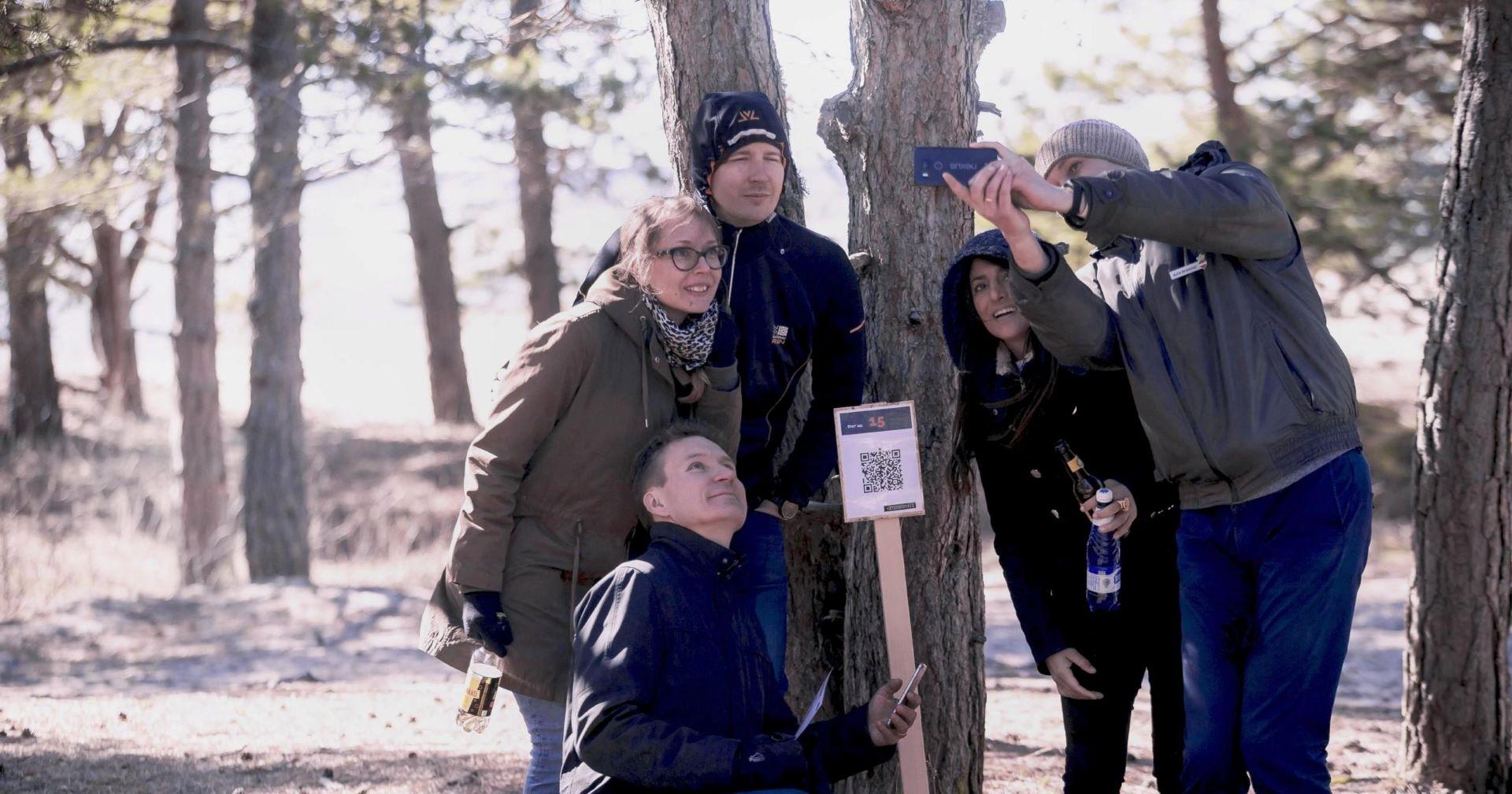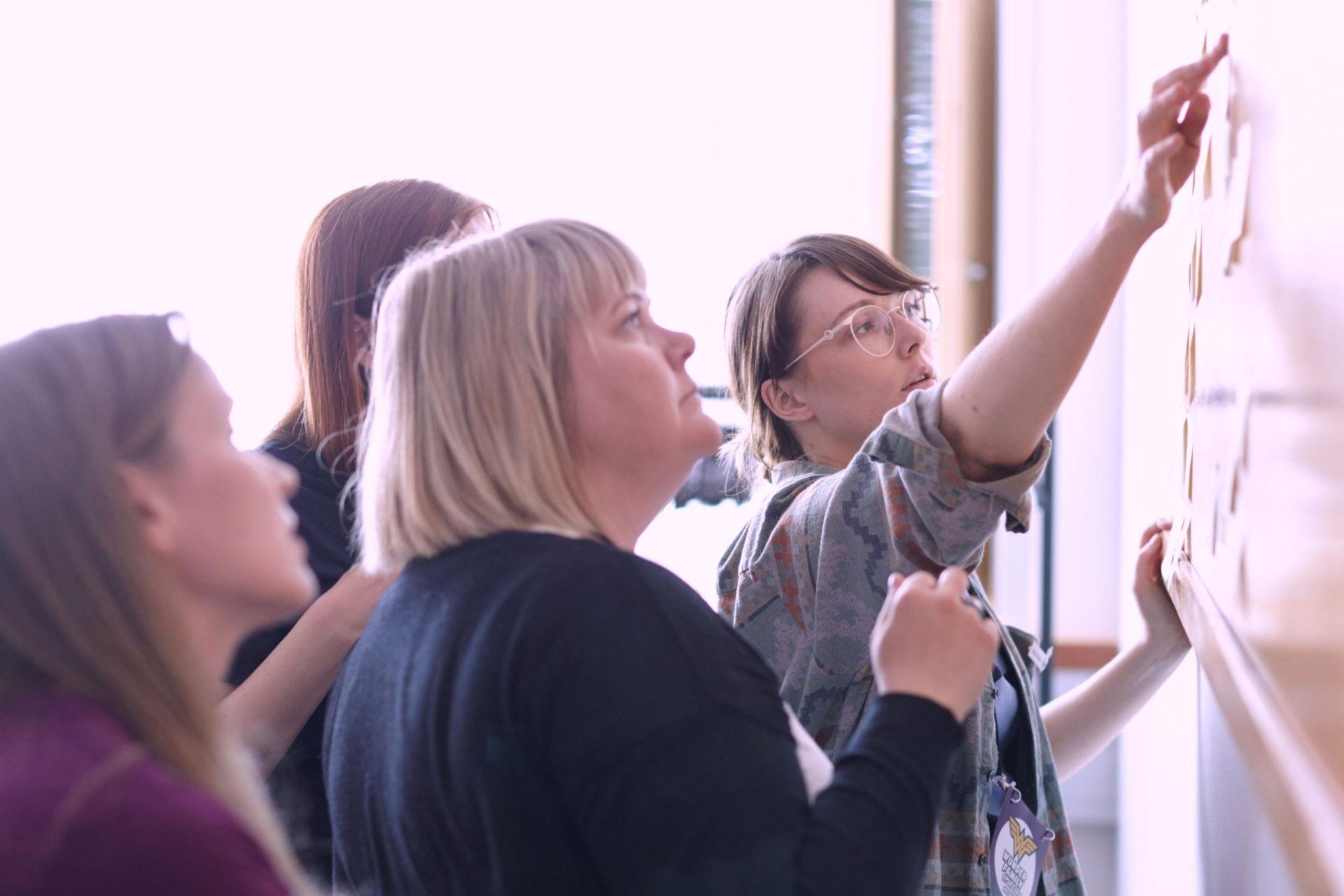Psychological safety — not a luxury but a key to success

In a culture like Wunder's that values people above all, psychological safety feels like something self-evident. But is it? Continue reading to find that out.
Professor Amy Edmondsonopens-in-a-new-tab of Harvard Business School has defined Psychological safety* as "a belief that one will not be punished or humiliated for speaking up with ideas, questions, concerns or mistakes."
In a culture like Wunder's that values people above all, it's of essence that all Wunderers genuinely feel they can be themselves and feel safe while learning and making mistakes on the job, asking questions, and sharing knowledge. It sounds like a no-brainer — of course, we are a psychologically safe workplace! But are we really? We wanted to find that out.
The importance of trust
In Wunder, we put together our teams to match each new project's requirements. This means there is a new team formation whenever a new project starts and so the team needs to start over, getting to know each other and building trust between its members.
From previous experience, we know that if there is little trust between team members - even if it concerns only a few of the team's members - it will affect how the whole team performs and reaches its results. We've also seen that once you lose trust and have a negative experience, it takes time to rebuild what you've lost. That can be costly on many levels.
Psychological safety as a term was brought up by two of our Delivery managers when working internally on defining our Delivery model. They were discussing how we could make sure everyone has a good experience when working on a team, regardless of the team composition. Presenting their thoughts, the concept of psychological safety, and the benefit it brings to our management and Talent team, it was agreed that we start experimenting on ways to improve the feeling of psychological safety on our teams.

Rolling up our sleeves
Quite quickly, there were three of us most actively discussing Psychological safety and driving the initiative forward, so we teamed up. Our team now consisted of two Delivery managers and one Talent representative, later to be joined by a developer.
Here's how we started and what we have kept doing for more than nine months now:
In the beginning, we created a (#1) Slack channel - a space for sharing knowledge and experiences and discussing the topic.
Then we started the (#2) pilot work with project teams. We identified three projects that were about to start and planned the following activities (randomly, not all efforts to all teams):
- Enabling the time and space for 1on1's between the project lead and each team member, with a focus on their expectations and what they find crucial in this particular project. What makes them feel safe? What kind of support is needed, and what motivates them the most?
- Assuring needed support for the team members to succeed, also from outside the project team.
- Reserving more time for teaming and internal discussions.
- Investing in more active communication in different project phases among the whole team.
- Adding a focus on facilitating and setting the ground for psychological safety.
- Emphasising retrospectives and discussing the process openly.
"It's been really inspiring to hear how people, regardless of their role or position in Wunder, have found this work important and taken part in the workshops with an open mind. Many have told us that discussing the topic has opened their eyes to realise that basically everything we communicate - and especially the way we do it - matters and that we all might perceive the same situation very differently."
By rethinking our (#3) team kickoffs - both internal and with the client - we changed the focus from project scope and technical details to people. This way, we strengthen the team feeling and encourage getting to know each other a bit better. We gave space for facilitated discussion: Who are we and why are we in this project? What do we expect from this project? What's in it for me? What concerns do I have? How does success look for me? We also started sharing the needs and interests, such as what's essential for me when working on a team? What do I need from others? What could cause conflict? What do I want others to know about me?
Along with the open conversation, we worked towards (#4) meeting the team's wishes, such as having a project room where the team could sit together, opportunities to meet outside the office (e.g. team lunches), Friday beers, etc.
After doing a workshop on Psychological safety with our management, we decided to arrange these (#5) workshops for all Wunder guilds** and teams. The aim was to give a common understanding to everyone on what Psychological safety is and how each of us can influence the feeling of psychological safety in everyday life, for ourselves and others. Discussing this topic on a practical level (What makes me feel safe or unsafe on a team?) means you have to open up a little and show some vulnerability.
"Communication is crucial for teamwork, but so is comprehension. We learn to understand each other better when we get to know each other. What I also love about teaming is that at the same time, we'll also learn things about ourselves."
Adapting new routines
Having offered workshops on Psychological safety to Wunderers, written internal blog posts on the topic, and included it at least on a high level in most team gatherings, we have realised that a crucial component for this initiative to succeed is to (#6) maintain regular communication. In company meetings, project kickoffs and retros, guild meetings, and team coaching sessions, psychological safety get proper attention. We emphasise that forming psychologically safe environments is not something you can just study, execute, and be done with. It's rather a mindset, a series of small actions daily - and we all need to contribute. Not only giving everyone a chance to speak and making sure that everyone is heard, but also putting effort into how we address people when approaching them in Slack, planning meetings, or commenting on each other's work.
And, of course, (#7) a proper measurement is something that allows us to evaluate the initiative and to develop even further. We are using a 7 question questionnaire borrowed from Amy Edmondson's book The Fearless organisationopens-in-a-new-tab. Currently, we are in a pilot phase of measuring the level of psychological safety in our teams. We plan to do the measurements at least three times during the project: after the kickoff, in the middle of the project, and at the end of it. The teams will then get their results and are encouraged to discuss them and agree on possible ways to address situations that need addressing. But this sounds like a topic for another article later on.
"This initiative has given a context for me - a frame for what I’ve long considered important for teams to work well together. I just didn’t realise it was called Psychological safety. With this newfound knowledge, I have more tools to work with teams to help them become stronger and achieve their results."
To be continued
It's already clear that what was started as an experiment, is here to stay. We have won people's interest - the number of our Slack channel followers is rising after each workshop, and so is the demand for more internal workshops. And we in the Psychological safety initiative core team are even more excited than when we started!
The level of psychological safety in our company is relatively high. Lots of us already see Wunder as a workplace that cherishes its values, makes everyone feel they can be themselves, learn from each other, grow, and try out new things. That is all 100% true, but what we aim for is that we could apply this newfound understanding to every single formation within the company, whether it is a business support team, a guild or a project team. In our opinion, there is always room for improvement, and we will keep improving. If you are interested in the topic, stay tuned to hear how we are proceeding.
For Finnish speaking audience, there is also a webinar content on this topic, check it out!
*Creating Psychological Safety in the Workplaceopens-in-a-new-tab, podcast by Amy Edmondson
**An organisational structure to support project teams’ work at Wunder.